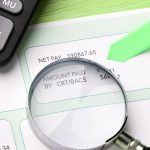Mortgage Loan Fraud Audits: Ensuring Financial Integrity and Protection
Mortgage loan fraud is one of the most serious threats to the stability of the financial industry, costing individuals, banks, and governments millions annually. Whether it’s a lender or borrower committing the fraud, the consequences are far-reaching. In this blog, we will explore the intricacies of mortgage loan fraud audits, their importance, and how they can help prevent financial losses, ensuring that the mortgage process remains secure and trustworthy.
Understanding mortgage loan fraud begins with recognizing the many forms it can take. It involves intentional misrepresentation or omission of information to deceive lenders or borrowers, potentially resulting in improper loans or defaulted mortgages. Mortgage fraud audits are designed to uncover these deceptive practices by thoroughly reviewing loan documents, financial transactions, and communications involved in the mortgage process.
The Rising Threat of Mortgage Loan Fraud
In recent years, the prevalence of mortgage loan fraud has been steadily increasing, especially in volatile market conditions. Lenders and mortgage professionals must stay vigilant to avoid falling victim to fraudulent schemes. Fraudulent activities can include falsifying income, inflating property values, or using stolen identities to secure loans. These schemes often go undetected for long periods, sometimes leading to loan defaults, foreclosures, and even criminal prosecution.
The emergence of sophisticated technology has also made it easier for fraudsters to manipulate information, making it even more challenging for lenders to recognize fraudulent activities. However, mortgage loan fraud audits provide a robust mechanism to mitigate these risks. By conducting a thorough analysis of the loan documents and transactions, auditors can identify red flags early, preventing potential losses.
What Is a Mortgage Loan Fraud Audit?
A mortgage loan fraud audit is a detailed process through which auditors examine mortgage loan files to determine whether any fraudulent activities have occurred. This audit involves a comprehensive review of documents, including but not limited to, loan applications, credit reports, appraisal reports, title documents, and financial statements.
The goal is to ensure that all information provided during the mortgage process is accurate, legitimate, and in compliance with applicable laws and regulations. Mortgage loan fraud audits help identify discrepancies that may indicate fraudulent intent or misrepresentation of information. Through these audits, lenders and financial institutions can safeguard their investments and maintain the integrity of their lending practices.
Key Areas of Mortgage Loan Fraud
Mortgage loan fraud can occur in several areas of the mortgage process, each requiring careful scrutiny. Some of the most common types of fraud include:
- Income Falsification: Borrowers may inflate their income to qualify for larger loans than they are eligible for. This type of fraud is often difficult to detect, as it involves the manipulation of pay stubs, tax returns, and bank statements.
- Appraisal Fraud: Fraudsters may inflate property values to secure higher loans or avoid paying mortgage insurance. Inflated appraisals can mislead lenders into approving loans for properties worth less than the amount being borrowed.
- Identity Theft: Criminals may steal personal information to apply for a mortgage in someone else’s name, leaving the victim unaware until they experience significant financial damage.
- Asset Misrepresentation: Borrowers may misstate the value of their assets or fail to disclose liabilities to improve their financial position and increase the chances of loan approval.
- Straw Buyer Schemes: In this type of fraud, an individual may act as a borrower on behalf of someone else, often to hide the true borrower’s identity or to circumvent credit issues. This tactic is common in illegal real estate deals.
How Mortgage Loan Fraud Audits Work
To ensure the accuracy of a mortgage loan file, auditors follow a methodical process that includes multiple stages. First, auditors will obtain all loan documentation and supporting evidence. This may include loan applications, bank statements, tax returns, pay stubs, and legal documents. Once all relevant materials are in hand, auditors begin to analyze each document for consistency, legitimacy, and potential red flags.
Auditors cross-check financial information, such as income and assets, with what is reported on tax forms and bank statements. Any discrepancies are flagged for further investigation. For instance, if a borrower’s stated income does not align with their tax returns or pay stubs, it could indicate income falsification. Similarly, auditors will look at appraisals to ensure that property values are accurately reflected and consistent with market trends.
Another important part of the mortgage loan fraud audit process is reviewing the borrower’s credit history and evaluating whether it aligns with the loan application. If a borrower’s credit report shows signs of recent fraudulent activity or discrepancies, it may raise concerns that the loan application is part of a larger scheme. The goal is to ensure that the borrower is a legitimate applicant and that the loan terms reflect their actual ability to repay.
Identifying Red Flags in Mortgage Loan Applications
An essential part of conducting an effective mortgage loan fraud audit is knowing how to spot the red flags. These are signs that indicate a potential fraud scenario or the possibility of intentional misrepresentation. Some of the most common red flags to watch for include:
- Inconsistent Information: Discrepancies between the loan application, financial documents, and credit reports.
- Inflated Property Values: Appraisals that exceed market value or seem out of line with comparable properties.
- Unverifiable Income: Inability to verify the borrower’s stated income through supporting documentation.
- Overstated Assets: Borrowers who report assets or liabilities that cannot be substantiated.
- Frequent Credit Inquiries: A pattern of recent credit inquiries that may suggest the borrower is engaged in multiple loan applications.
Identifying these red flags early in the mortgage process is crucial for preventing fraud. If any of these signs are present, the loan may be subject to a more in-depth investigation, potentially leading to the rejection of the loan or criminal prosecution if fraud is confirmed.
The Role of Technology in Mortgage Loan Fraud Audits
In today’s digital world, technology plays a significant role in detecting mortgage loan fraud. Advanced software tools help auditors identify suspicious activity by automatically flagging potential discrepancies, comparing data across multiple documents, and scanning for irregular patterns. This use of technology makes the mortgage loan fraud audit process more efficient and accurate, reducing human error and ensuring that nothing is overlooked.
Moreover, these tools can help auditors track data from various sources, providing a more holistic view of a borrower’s financial history. They also facilitate the sharing of information between lenders, regulators, and auditors, improving the overall efficiency and transparency of the mortgage industry.
Why Mortgage Loan Fraud Audits Are Essential for Lenders and Borrowers
For lenders, a mortgage loan fraud audit is a critical safeguard against potential financial loss. Fraudulent loans can result in a defaulted mortgage or foreclosure, leaving lenders with significant unpaid debts. A comprehensive audit helps identify these risks before they escalate, providing lenders with the information they need to make informed decisions about which loans to approve.
For borrowers, mortgage loan fraud audits can also be beneficial. While they are primarily designed to protect lenders, they ensure that all parties involved in the mortgage transaction are operating under the law and following ethical practices. Borrowers can rest assured that their loan terms are legitimate, preventing any future complications that may arise from fraud.
The Benefits of Conducting Mortgage Loan Fraud Audits
There are several benefits to conducting a mortgage loan fraud audit, including:
- Early Detection of Fraud: Audits help detect fraudulent activity before it leads to financial loss.
- Regulatory Compliance: Mortgage lenders are required to comply with various regulations. Audits help ensure that they meet these legal standards.
- Increased Security: By reviewing loan documents for potential fraud, lenders and borrowers alike are protected from future complications.
- Enhanced Risk Management: Audits provide a clear picture of potential risks, allowing lenders to manage their investments more effectively.
How Mortgage Audits Online Can Help
At Mortgage Audits Online, we specialize in providing comprehensive mortgage loan fraud audits to ensure that your mortgage process remains secure and transparent. Our team of experienced auditors uses the latest tools and technology to identify potential fraud and protect your financial interests. We work closely with lenders and borrowers to ensure that every loan meets the highest standards of integrity.
If you suspect mortgage fraud or are looking to safeguard your financial future, don’t wait until it’s too late. Contact us today at (877)-399-2995 or visit Mortgage Audits Online to learn more. Secure your financial future with confidence!
Conclusion
Mortgage loan fraud remains one of the biggest threats to financial stability in the housing market. However, with the right tools, resources, and expertise, the risks associated with mortgage fraud can be minimized. By conducting thorough mortgage loan fraud audits, lenders and borrowers can work together to ensure the integrity of the mortgage process. For those seeking to protect themselves from fraud, Mortgage Audits Online offers the expertise and support you need to secure your financial future.




